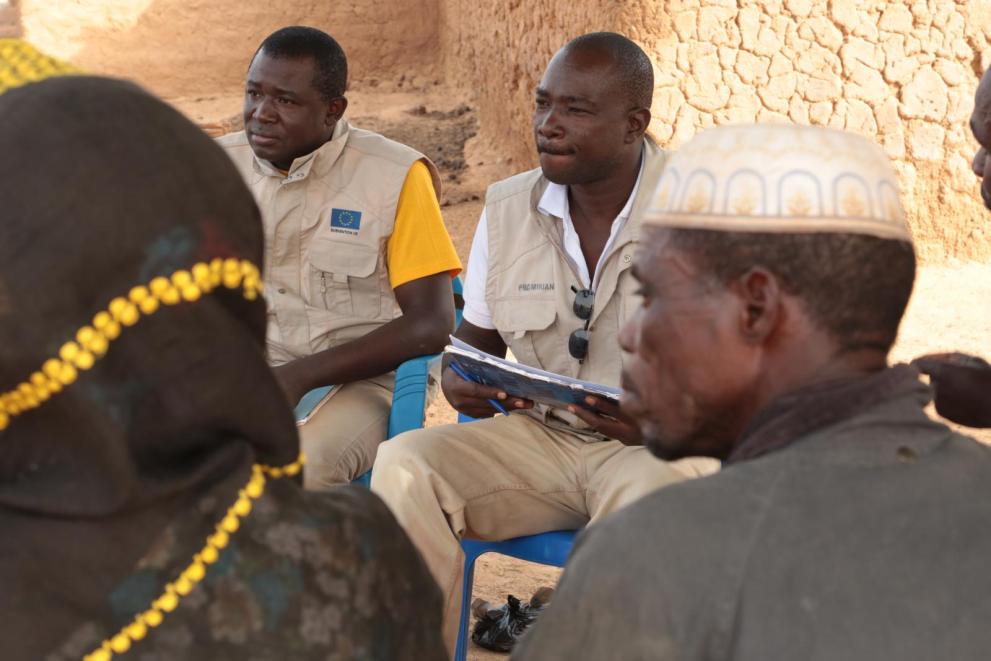
The European Union adopts today new programmes and projects worth a total of €467 million under the Emergency Trust Fund for Africa.
The EU continues to deliver on its commitments to assist vulnerable migrants and refugees and address root causes of irregular migration. The new support measures in the Sahel/ Lake Chad region and the Horn of Africa will foster stability, jobs and growth, especially for young people and vulnerable groups.
They complement ongoing bilateral and multilateral efforts, such as through the Joint African Union – European Union – United Nations Task Force. Today's additional funds will allow for live-saving assistance to be taken forward, including accelerating resettlements of refugees from Niger as a priority.
High Representative/Vice-President Federica Mogherini said: "We continue working to save lives, provide safe and dignified returns and legal avenues, and tackle the root causes of migration, by creating jobs and growth. With the UNHCR, we have evacuated 1,287 refugees from Libya to Niger, who need to be resettled swiftly now. With the IOM, we helped 22,000 people to return home and provide reintegration assistance. Today's additional commitments will further consolidate our work towards managing human mobility - in a humane, secure and dignified way together with our partners.”
Commissioner for International Cooperation and Development, Neven Mimica, said: "The majority of today's €467 million assistance package will be dedicated towards improving employment opportunities, especially for young people. But challenges remain, and the Trust Fund's resources are running out. If we want to continue our live-saving assistance, additional contributions by EU member states' and other donors will be crucial."
Protection and assistance for people on the move
The European Union's work with the UNHCR has so far allowed for 1,287 refugees to be evacuated from Libya to Niger through the Emergency Transit Mechanism, with 108 people having been further resettled to Europe. In parallel, together with the International Organisation for Migration, 22,000 migrants stranded along the routes have been assisted to voluntarily return home, where they receive reintegration support. Today, the EU mobilises an additional €70 million, of which €10 million will support accelerating resettlements under the UNHCR's Emergency Transit Mechanism and €60 million ensure that voluntary return and reintegration assistance can be continuously provided by the IOM. In Kenya, an innovative approach to piloting private sector development will promote better economic integration of refugees and supports the implementation of the Comprehensive Refugee Response Framework. Additional €20 million in regional support will help countries in the Horn of Africa, in developing and implementing sustainable and rights-based return and reintegration policies.
Increase stability, resilience of local populations and improve migration management
Increasing stability and supporting the resilience of local populations is one of the pillars of the EU's integrated approach. In central Mali, activities worth €10 million will address the rapidly degrading security situation, to increase trust between Malian security forces and local populations. Further new activities will promote conflict prevention, foster food security in South Sudan or improve knowledge on malnutrition in Sudan. In Sudan, support will also enable humanitarian and development actors to access hard-to-reach areas. In Cape Verde and Guinea Bissau new measureswill help to set up a reliable civil identification registration and document issuance system, to allow the population to benefit from enhanced mobility, document security and better access to rights.
Economic opportunities for young people
Providing sustainable employment opportunities for young people is key to tackle the root causes of irregular migration. New actions will support the skills development and vocational training of young people to help create better employment opportunities, for example in Ethiopia, Nigeria or The Gambia. In Sudan, a new support project, will strengthen the job skills of young people and support them through training to establish and grow businesses. This project will target disadvantaged groups, such as refugees and internally displaced people and, like all EU assistance in Sudan, will be realised through trusted implementing partners.
In order to ensure continuous monitoring of the effectiveness of Trust Fund for Africa programmes, the funding of the dedicated monitoring and learning system has been doubled from €2 million to €4 million.
Background
The EU Emergency Trust Fund for Africa was established in 2015 in order to address the root causes of instability, irregular migration and forced displacement. Resources currently allocated to this Trust Fund are €3.4 billion from EU institutions, European Member States and other donors.
Today's assistance adds to the 147 programmes that were already previously approved across the three regions (North of Africa, Sahel and Lake Chad region and Horn of Africa) worth a total of €2,594 million, which was divided as follows: Sahel/Lake Chad €1,293 million (79 programmes), Horn of Africa €820.3 million (50 programmes), North of Africa €335 million (14 programmes). This amount also includes 4 cross-region programmes (€145.1 million).
For More Information
EU – IOM Joint Initiative for Migrant Protection and Reintegration
Details
- Publication date
- 29 May 2018
